Problem-Solving Skills Extra Challenge Subtraction Worksheets for Ages 4-6
5 filtered results
-
From - To
Discover our "Problem-Solving Skills Extra Challenge Subtraction Worksheets" designed specifically for children aged 4-6! These engaging worksheets not only introduce subtraction concepts but also encourage critical thinking and problem-solving skills. Each activity is tailored to challenge young learners, integrating fun scenarios that enhance their understanding of subtraction through real-world applications. Kids will explore various problems, boosting their confidence in math while developing essential cognitive abilities. Perfect for at-home learning or classroom use, these worksheets will keep your little ones entertained while laying a strong foundation in mathematics. Download now and watch your child's problem-solving skills grow!
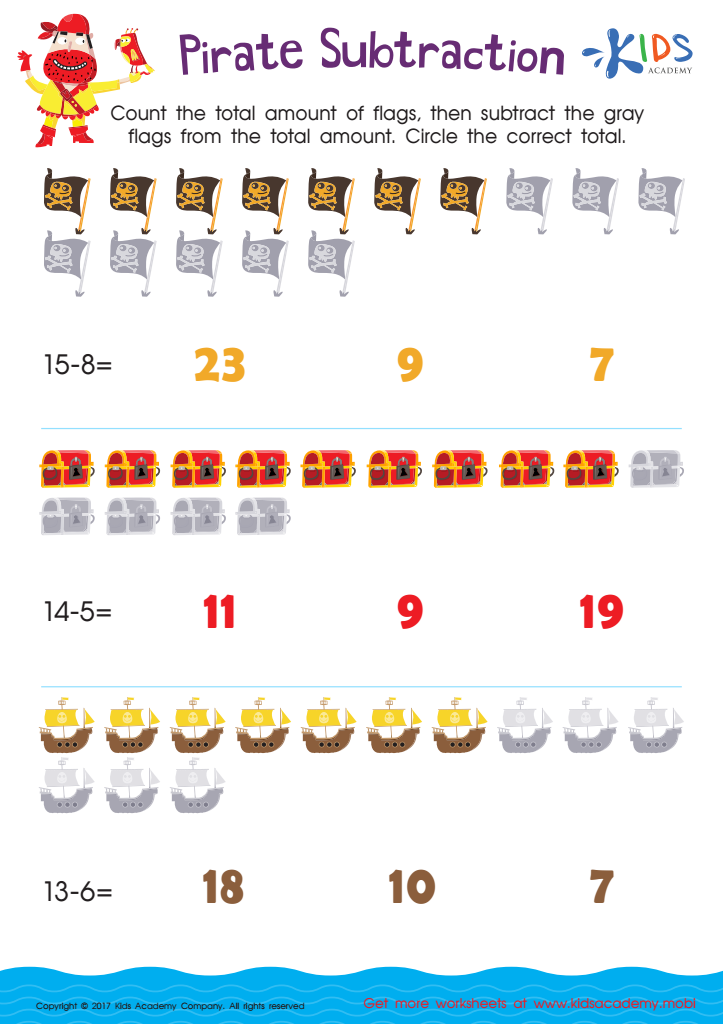

Pirate Subtraction Substraction Worksheet
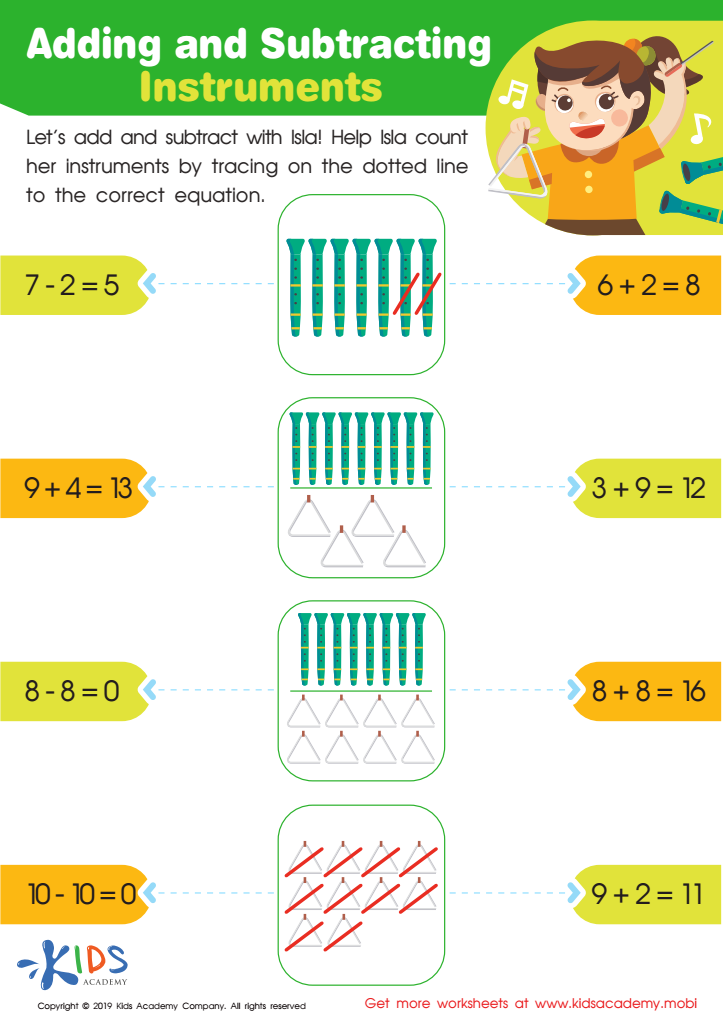

Adding and Subtracting: Instruments Worksheet
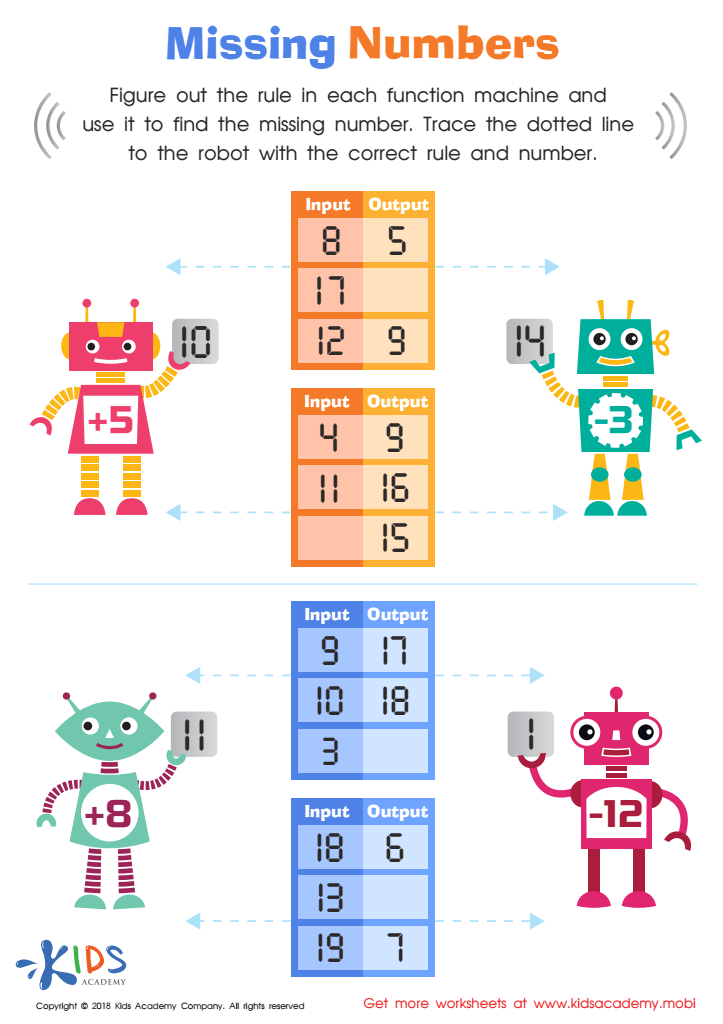

Missing Numbers Worksheet
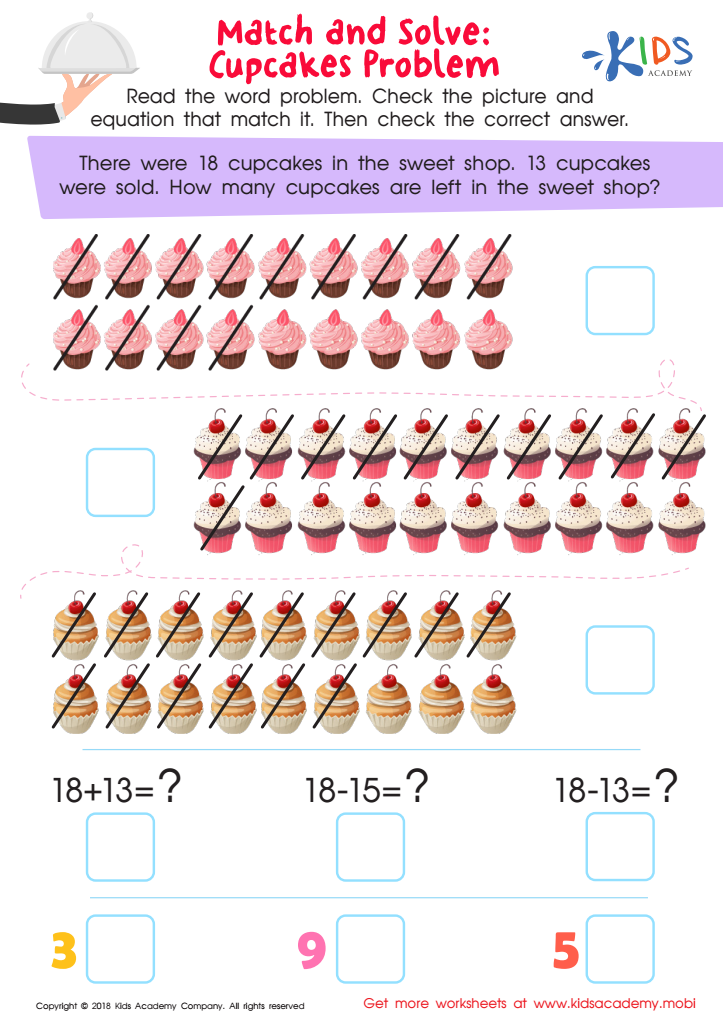

Match and Solve: Cupcakes Problem Worksheet
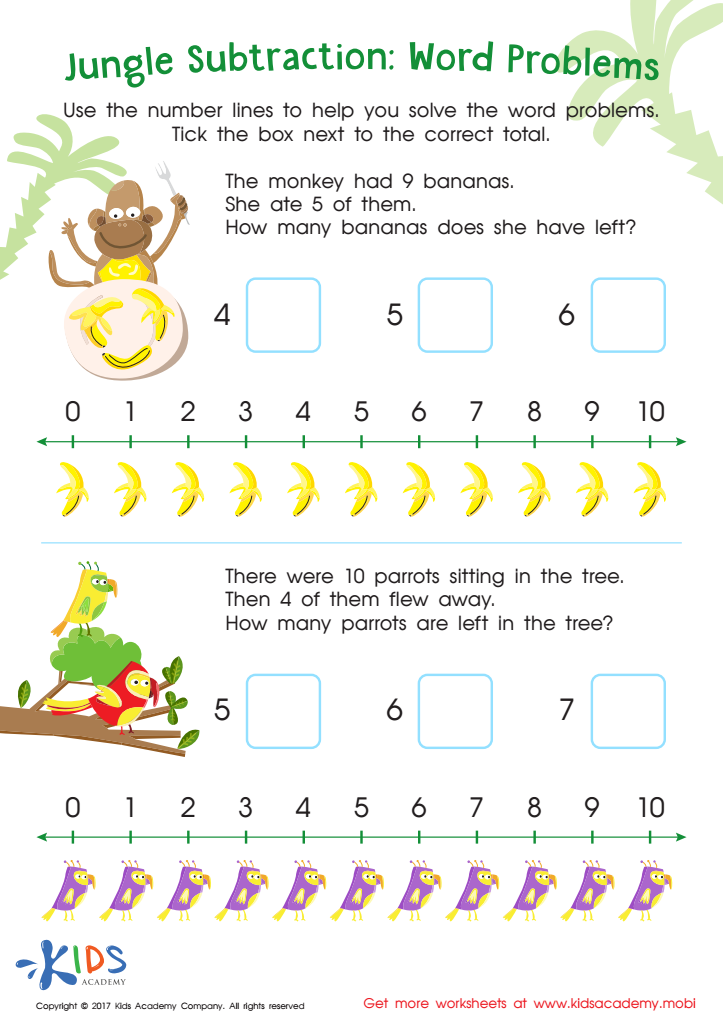

Jungle Subtraction Word Problems Substraction Worksheet
Problem-solving skills, especially in the context of extra challenge subtraction for ages 4-6, are crucial for young learners. These skills enhance children’s critical thinking, enabling them to approach math with confidence and creativity. Early exposure to challenging subtraction problems helps develop a strong numerical foundation, equipping children with the tools to tackle more complex mathematical concepts in the future.
By focusing on extra challenge activities, teachers and parents encourage perseverance and resilience. Children learn that making mistakes is part of the learning process and that they can find solutions through exploration and experimentation. This mindset fosters a love for learning and helps cultivate a supportive environment where children feel safe to express their thoughts and ideas.
Furthermore, strong problem-solving skills extend beyond math. They aid children in developing strategies for real-life situations, promoting adaptability and confidence in various contexts. As these young learners navigate challenges, they also enhance their communication and collaboration skills by engaging in discussions with peers or adults about different problem-solving approaches.
In today’s rapidly changing world, nurturing these skills early ensures children are well-prepared to face future academic and life challenges, making it vital for both parents and teachers to prioritize problem-solving activities in their educational approach.
 Assign to My Students
Assign to My Students
















